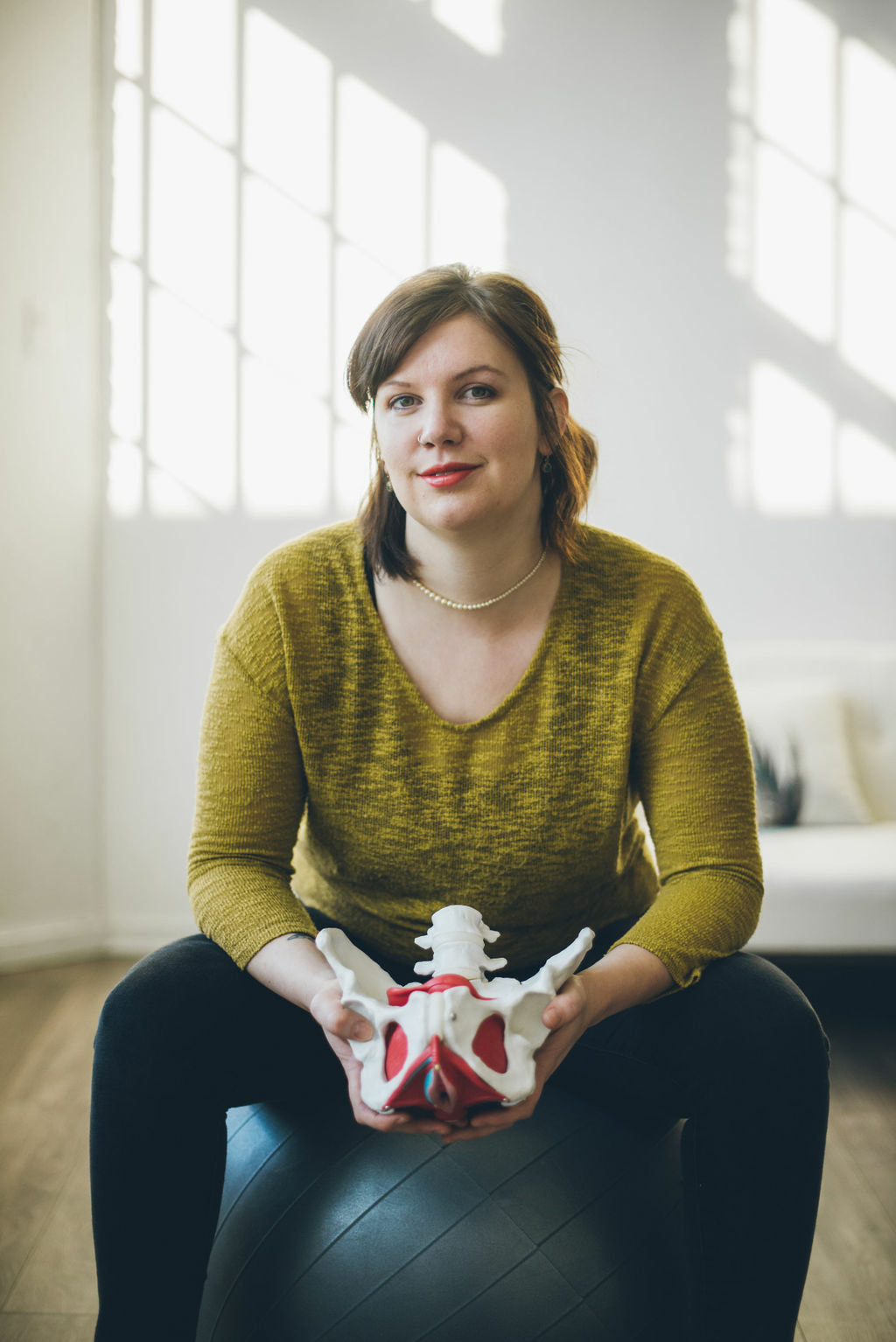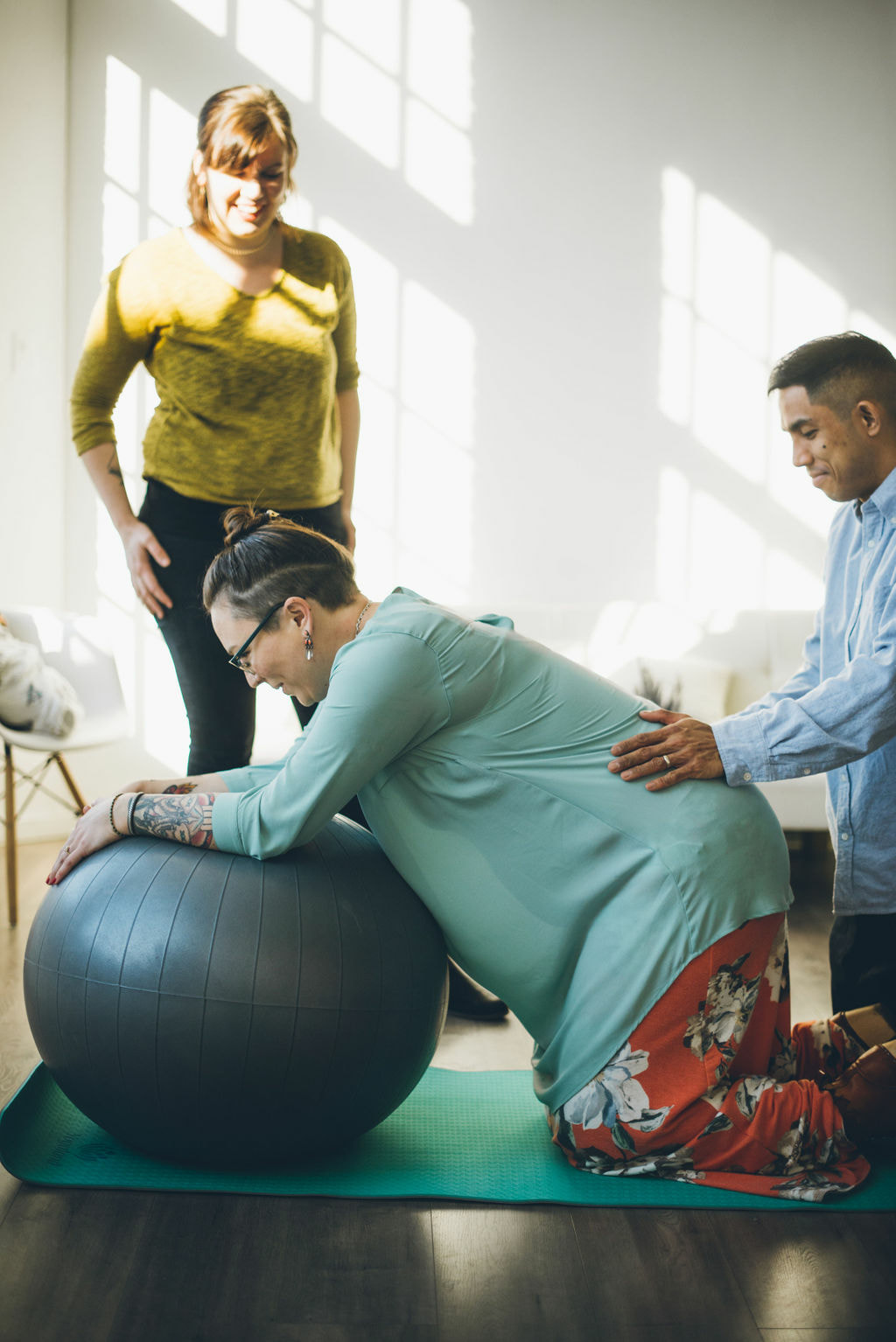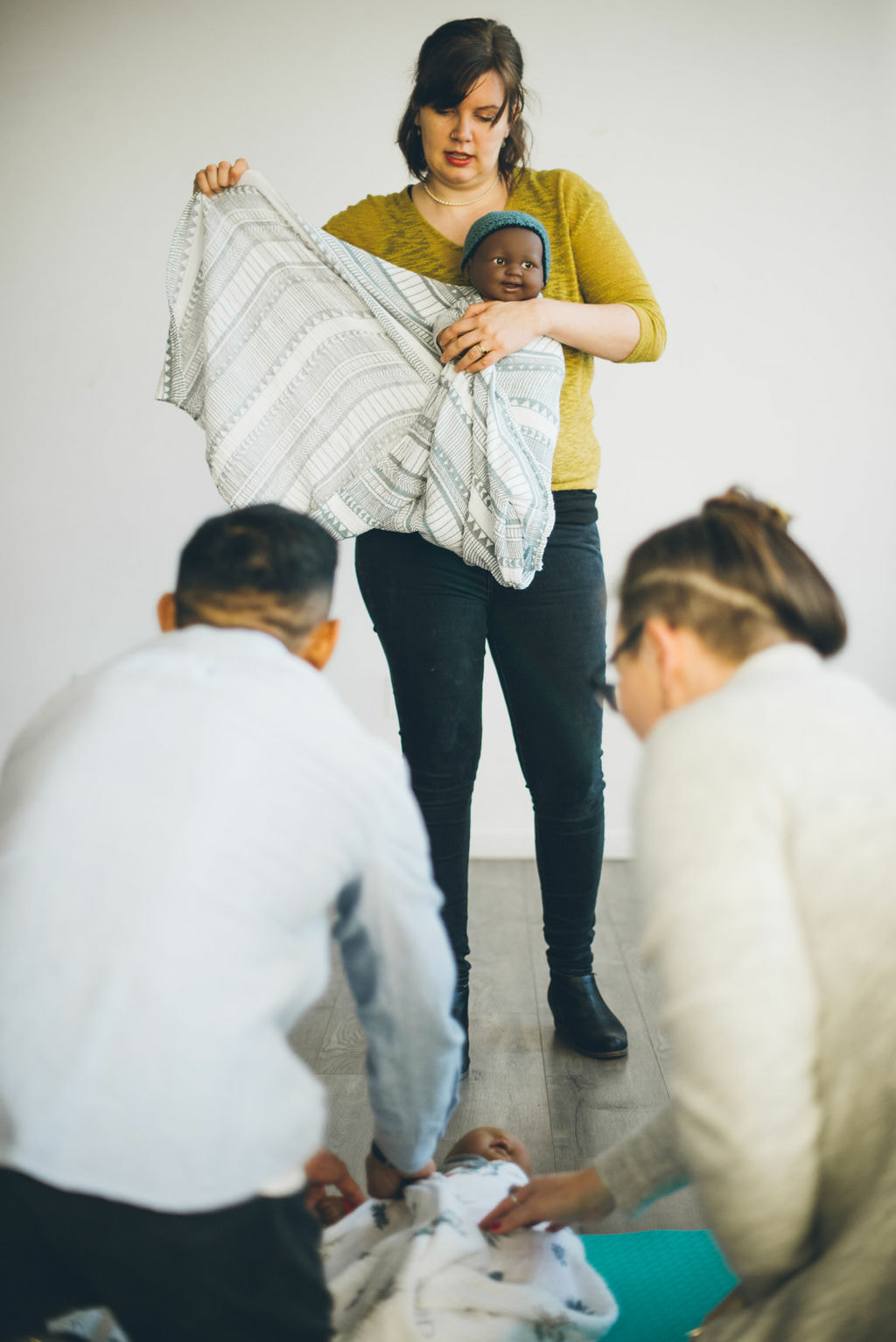Interview with stephanie elliott of elliott lactation and education - education classes for parents!4/17/2019 Stephanie, can you tell us a little bit about yourself, personally and professionally?
I’m a 32 year old midwife, lactation consultant, educator, mom, and eternal student. I was raised in rural Ontario, Canada, then moved to Montreal in my late teens and attended my first birth at 19! I worked as a doula primarily with immigrant and refugee populations. I learned a lot about humility and women’s courage during that time. At age 22 I moved to Portland to become a midwife. I went to Birthingway and did my clinical training at Alma Birth Center where I then went on to become an assistant and eventually a lead midwife. In my time at Alma I developed my love of clinical care —problem solving, collaborative care, researching evidence-based practice, and obviously catching babies— but I also developed my love of education and informed choice. Midwifery is always a process of shared decision-making: the midwife giving their best information about safety and personally deciding what they are comfortable with, and the client deciding which procedures, tests and screens they want to do, and ultimately what risks they are willing to take for their own family. In order to make those decisions from a really grounded place, people need excellent education, so I found that I loved helping my clients truly deeply understand things so they could make decisions guided by their own values and risk-assessment. I also LOVED teaching midwifery students. After 7 years of being on call and catching babies I decided to return to school. I loved being a midwife, but I had concerns about my ability to be on call 24/7 and care for the family I hoped to have soon. Additionally, I was becoming more and more aware of the startling statistics about inequities in maternal child health in the US and wondered if I could be more involved in finding a solution to that. I begin my masters program in Epidemiology in the fall and I’ll specifically be looking at disparities in birth outcomes for babies and moms. It’s really important that we gather lots of data about how racial discrimination and oppression specifically impact birth outcomes to create targeted interventions to stop it and make birth equitably safe for everybody. While I was in school I started to teach childbirth education, newborn care, and breastfeeding classes at Legacy. I just left that job to focus on my education business, because I just wanted to be able to focus on things I think are neglected in most childbirth education classes. How has becoming a parent changed your relationship with your work? Well, I’ve never been a very dogmatic midwife. I’ve never had strong opinions about how people *should* give birth because birth is so personal and we all have our own stories and traumas and preferences, so I’ve never been a huge advocate for natural birth, or a certain method of birthing or parenting. I’m like, ‘natural birth is great! Let’s do it! But also epidurals are good too! Have one if you want! Breastfeeding has lots of benefits and is great food for babies, but if it’s going to give you dysphoria or make you want to crawl out of your own skin to do it, don't! Let’s learn about bottle-feeding!’ I guess having a baby made me feel even more like that. It made me more pro-choice, and even more like ‘hey, you should do this in the most you way possible’ because you are the right parent for your kid. When I was gearing up to have my baby a lot of well-meaning midwife friends who’d given birth were like “you just have to get out of your midwife brain and be in your body”. This seemed like pretty good advice, right? Like, based on what we know about the hormones of labor it’s good to be relaxed and in your “lizard brain” not thinking much. But, listen... I’m incredibly cerebral. My brain is my best companion and there was no getting out of my head. So I used my brain during labor. I created my own mental activities to get myself through the intensity of labor because that was the most me way to give birth. So, I guess I want to help people tap into their own most me way to give birth. Like, my way probably won’t work for you, you know? My grounding philosophy about birth is that I want everyone to feel educated, empowered, and supported, and like they understand what is going on. Beyond that, people can use their own values, beliefs, and personalities to guide them through birth. They don’t need me to impose mine. I haven’t caught any babies since I gave birth and I probably won’t again unless I get really lucky on an airplane or the apocalypse happens, but if I did I’d probably hold those birthing folks a little closer, see them through a few more tears in my eyes, and be filled with the absolute deepest thrill for the adventure that was yet to come. Tell us a little bit about your classes! I'm so excited about these classes! I’ve been teaching childbirth and parenting ed for threeish years in the hospital and it’s been great fun. I was actually really impressed by the quality of the classes compared to my previous assumptions about what hospital classes were like. Props to Legacy. They’re doing a good job. But I really wanted to make my own curriculum that allows for inclusion of some things that I think aren’t always prioritized. I’m really into helping people understand the mechanics and physiology of birth, partially because I’m a giant nerd, but also because I think it really helps so I offer some great hands on models and materials to help people understand what’s really happening. I think I offer a little more science with my birth classes just because I’m endlessly in awe of it. But I also wanted to emphasize recovery more. We live in a country with ZERO WEEKS of paid maternity leave, our expectations of human bodies and human hearts are completely unreasonable, so I do my best to give people the best information about how to recover physically and emotionally from birth and begin to function in a society that is more or less outright hostile to new motherhood. I focus on postpartum planning a lot, because I think we don’t emphasize that enough. I was excited to see that you interviewed Kestrel Gates because I LOVE her workbook and the deliberate attention to postpartum planning. Generally my classes are dynamic, fun, and simultaneously reverent and irreverent. I make bad jokes. I focus on a lot of kinesthetic learning tools, so we practice positions for labor and skills like swaddling and baby-wearing, and I also have physical models of things that we can pass around and touch and you can open a cross section of a uterus with your own hands and begin to understand what it means to have this organ in your body. Again, I’m not pushing any kind of dogma, so my classes are appropriate for folks birthing in all settings with all plans for pain management, without any judgement from me. Likewise, people of all gender identities, body sizes, races, cultures, family structures, abilities, etc are going to feel comfortable in my classes. The class I’m most excited about is one that isn’t really offered elsewhere and its based on a major need I see not being met right now. That is my “Understanding research and informed decision-making for parents” class. That’s a mouthful but what it is, essentially, is science literacy for the internet age, specifically as it pertains to parenting (although the skills learned in this class can apply to research in all facets of life). It’s a class that helps you in the situation where you’re with a friend and they say “well I read that *** is really dangerous and that we should do this *** instead” so then you can then say “ok that’s really interesting, I should research that” and then have the skills to know which of the information you find on the internet is based in science, whether the science is good, and how to weigh the information and make your decisions. Likewise, what do you do when NPR reports on a study that says that everything we thought was true about something isn’t. What do we do? Do we change course? In this class I’m not proselytizing against natural medicine, or for vaccines or anything like that, I’m just trying to help you access and assess information and make decisions based on a combination of good information and an understanding of its sources, your personal values and ethics, and what feels right for your family. I’ve had a huge amount of privilege to be able to learn these skills in my degree and I’d just love to share them with parents. Also the class will be SO FUN and not stuffy. One last thing: I use an online learning platform to supplement the in-class education. So in addition to our class time students can log in and see tons of resources, videos, and have an opportunity to build community and engage with their classmates if they so choose. What can parents hope to go away with from your classes? Confidence, mostly. I want them to feel confident in their knowledge and skill-set, in their ability to cope with the intensity of labor and the curve balls labor and parenting throws their way, in their decision-making skills, and confidence in themselves, their families, and their relationships to grow stronger through this intense transition, rather than to suffer. Also, excitement, because parenting is incredible. Also deep self-acceptance, because I’m all about people just being their damn selves and being ok with that, but radical self acceptance might be a tall order for a 4 week childbirth class. Is there anything else you'd like us to know? I’m here to help and support. I know a lot of community resources that I can point folks to. I can work out payment plans if need be. I offer discounts to people on OHP and BIPOC who are at risk of poorer health outcomes related to racial discrimination. How can I sign up for Stephanie's classes? www.elliottlactation.com/classes You can register on the site linked above and pay via credit card or apple pay. You’ll get an email from Stephanie shortly after confirming and a few weeks before class you’ll get a login for the online learning platform. Stephanie's next childbirth education, breastfeeding, and newborn care series begins on Sunday, May 19th, 2019, and goes for four weeks, so, sign up soon! How can I contact Stephanie? Facebook: www.facebook.com/elliottlactation IG: @elliottparenteducation [email protected] 503-515-7246
0 Comments
|
AuthorCheck out Catherine's bio using the button below! Archives
December 2023
Categories |
Photography by Meg Ross Photography, Tanya Hladik, @mindfulwayfarer, @dijanaszewczyk, and Chelsea Jones




 RSS Feed
RSS Feed